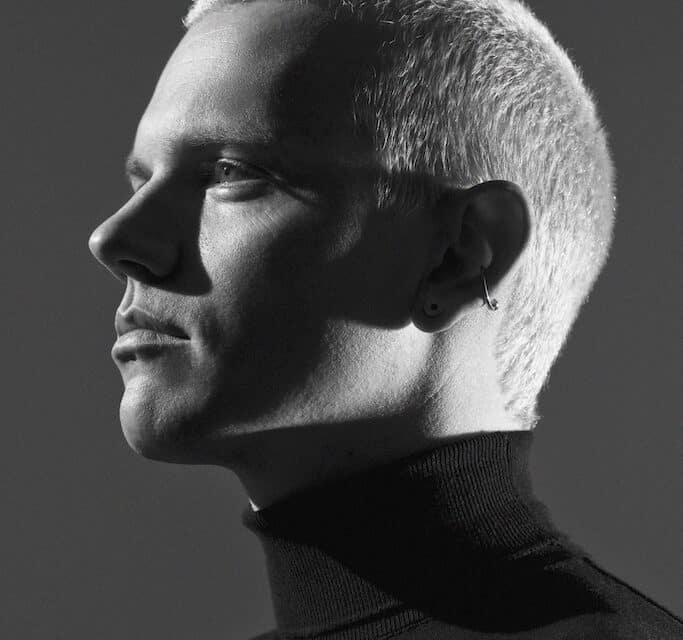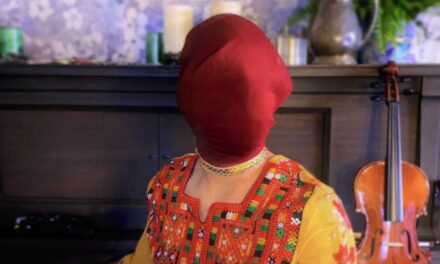Toronto’s Tom Meikle—better known as Mappe Of—has always been less interested in fitting neatly into genre than in building worlds that shimmer somewhere between folk, sci-fi, and fever dream. With his forthcoming record Afterglades (out September 19 via Paper Bag Records), Meikle pushes that vision into its boldest, most cinematic form yet: a post-apocalyptic meditation that insists on hope even as it reckons with collapse.
The newest single, “Obsoloscenic,” arrives like a final transmission from the edge of the world. Built on cascading synths, haunting vocal layers, and a pulse that feels both human and mechanical, the track spirals between resignation and resistance. “How did we become so blind in our visions?” Meikle asks, before crashing into the existential refrain: “How long till we go now? I don’t want to live that long.” It’s less a surrender than a reckoning—a recognition of a planet spinning toward endings, and a plea to carry light through the ruins.
Speaking on the song, Meikle reveals that the title came first, a word-mash that captured the unease of watching AI break into the mainstream. “I was feeling very depressed and hopeless,” he shares. “This song came from trying to find a way to reckon with it, but still see hope through it… there’s just no other option than to be optimistic in my mind, naïve and difficult as it may be.”
That fragile, insistent optimism is what sets Afterglades apart from other dystopian works. While its soundscapes can be jagged and apocalyptic—glitching electronics, distorted guitars, ruptured textures—the project always bends back toward light. Songs like “Terraforming Moons,” “Honeyhaze,” and “Happiness in the Singularity” build tapestries of classical strings, spacey synths, and folksy intimacy that suggest a strange beauty in surrender. Even “A Scourge Laid Upon The Earth,” with its title like a plague diary, pulses with life.
Across the album, Meikle imagines a world where glowing ethereal beings float above broken structures and overgrown greenhouses, not as ghosts but as reminders that endings don’t erase what was—and that something radiant can still emerge. It’s a record about mortality and memory, yes, but also about empathy, persistence, and the stubborn will to keep creating meaning when everything else slips away.
With Afterglades, Mappe Of doesn’t just soundtrack the end of the world. He reframes it—inviting us to look squarely at decay and still insist on wonder. In a moment where technology marches forward unchecked and the planet feels increasingly fragile, that act of defiant hope may be the most radical gesture of all.





